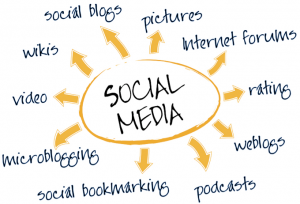
A very long time ago, there lived a small family of three – the father, Bill, and his children, Mary and Mark – in a lone house on a beautiful remote island. Life was peaceful, and exquisite beauty could be found everywhere – views of the sea and the horizon were untainted by the rough silhouettes of ships. The forest surrounding the house was magnificent, home to an impressive variety of animals who thrived in the company of each other, and the family living among them.
Mary and Mark lived quite happily in their house with their father, who allowed them as much freedom as children could wish for to run around and explore the island. He did, however, have one exception: there was an attic in their home where Bill forbid the children to ever enter, under any circumstance. This room, he told them, was forbidden to anyone but Bill – and he kept the key under his pillow every night as he slept. For several years, Mary and Mark were content with everything they had: a loving father, a lovely house to live in, and a beautiful island to call home. They accepted their father’s one condition without questioning him, and were content with the abundant amount of things that they were allowed to do.
However, a time came, as it always does, when the children grew older and their sense of curiosity stronger than ever before. One day, when Bill was out for a swim in the lake like he loved to do at least once a week, Mary had a small idea, a little thought of curiosity that nagged her in the back of her mind.
“Mark!” She called to her brother. “What do you say, we take a look in our attic today, just a quick peek?”
Mark glanced back at her, doubt filling his face. “But Father forbid us to go in there, remember?”
“Father will never find out! He’s out swimming right now – we’ll be in and out of there in no time…either ways, I’m going to take a look. Come if you want.” Mary shrugged, slightly annoyed at her brother for always being the voice of reason, as she turned and started up the stairs towards the forbidden room.
Mark looked up in despair as he watched his sister walk away. He was torn between wanting to discover what was in the mysterious room with his sister, and obeying his father. After several seconds of indecision, he called out after Mary, “Wait up! I’m coming!”
The two stood outside the large wooden door, Mary with the key in her hand that she had taken from her father’s room, and Mark with a look of apprehension. In a few swift seconds, the door was unlocked and the door swung open with a loud creak.
“Hello there,” a raspy voice called to them from the back of the dark room. “Mary and Mark – I’ve been waiting for you.”
“How did you know our names?” Mark demanded, slightly frightened.
“That is unimportant,” the voice shrugged. “What is important is that you two finally came.
No matter how hard the two of them squinted in the darkness, they could not make out the source of the voice.
“Come on in,” the voice said. “Would you like to hear a story that you’ve never heard before?”
The two of them stood apprehensively, wanting to leave this strange, unknown room but a part of them feeling extremely curious as to what kind of story this mysterious voice had to tell.
“S-sure,” Mary stuttered. “But we don’t have a lot of time, so please do make it quick.”
Without further ado, the voice jumped straight into the narrative of the story. It was a story filled with darkness darker than the room they were in, full of chaos and destruction – concepts that were, until then, strange and unknown to Mary and Mark. The story was one of betrayal, of sin, and of disasters, one after another. It wasn’t a long story – rather, it was quite short. However, once it was over, Mary and Mark were trembling on the spot, regretting ever having opened the door to this attic, to having ever agreed to hear this terrible story. They felt something that they’d never felt before, and it took them a while to find the right words to describe it.
“….Mark? I’m scared.” Mary whispered, tears pouring down her cheeks.
Mark, too, felt extremely scared, frightened at this strange new emotion. He, however, refused to show it, and instead yelled at the voice, “take it back! I don’t want to know your awful story anymore. I hope you stay in this room forever!”
And with that, he took Mary’s hand and the two of them ran from the attic as fast as they could.
“Let’s just try to forget that ever happened,” Mark whispered to Mary once they were out. But it was too late. Everything looked different to them. As the two of them looked out their window, the island that they once found so beautiful was changing before their eyes. Torrential rain poured from the skies and trees were struck by lightning left and right, losing all their leaves and several of their branches.
Suddenly, the door of the house burst open, and Bill stood there soaking wet, a devastated expression on his face. As his eyes landed on his children, a single tear rolled down his cheek.
“Why didn’t you obey me?” He questioned his beloved children. “I tried to give you everything you ever wanted, that you could ever desire. Why did you have to do the one thing I forbade you to?”
“We’re sorry, Father!” Mary and Mark wept, running to him. “Please, we will never do that again. Tell the voice to take its awful story back – we just want things back to normal, like they used to be again.”
But it was too late. The damage had been done, and the innocent beauty of the island and of the children had been destroyed by the story they’d just heard.
For once a story is told, it cannot be called back. Once told, it is loose in the world.
Commentary
Writing this story was an extremely fun experience, as it made me think creatively and of how to add my own twist to a creation story about how evil entered the world. Through this story, I wanted to highlight how evil in the world has tainted the innocent happiness and contentment of the people in the world, and of how, sometimes, bad news can change a person’s extremely happy day into one of sadness and frustration in a very short amount of time (much like how the length of the story above was short, and yet had a huge impact on Mary and Mark).
I think that the amazing thing about short stories is how they have the power to tell a story that can be interpreted in many different ways, by many different people, from the author to every reader who reads the story. I believe that one idea – the idea of how evil entered the world – can easily mean many different things to different individuals – and that is the beauty of storytelling in itself.
Works Cited
King, Thomas. The Truth About Stories: A Native Narrative. Toronto: House of Anansi Press, 2003. Print.
“National Storytelling Network.” National Storytelling Network. N.p., n.d. Web. 30 May 2016.
“The Five Important Elements of a Short Story.” The Five Important Elements of a Short Story. N.p., n.d. Web. 30 May 2016.

